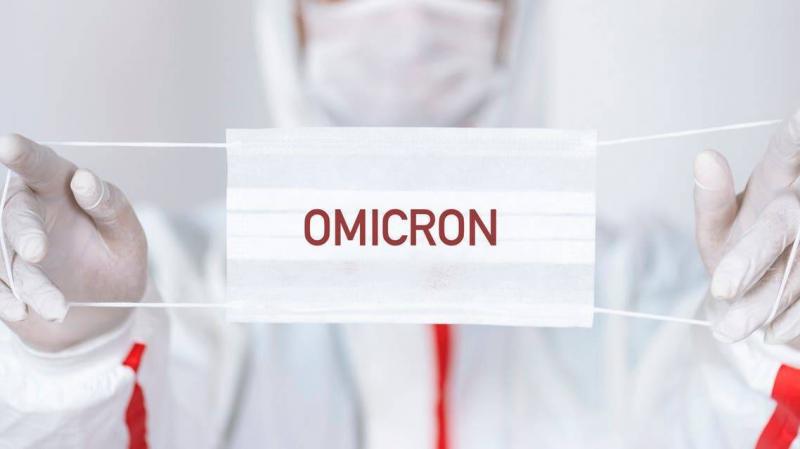The Omicron variant spreads rapidly, leading some to feel that resistance is futile. It's frustrating to hear about individuals who have been vaccinated and boosted getting infected with Omicron, even while diligently wearing appropriate masks outside, according to a report by Live Mint. It is known and scientifically proven that COVID-19 vaccines are effective and provide protection even against the Omicron variant. However, in some cases, the efficacy of vaccines is weaker. The secret behind this situation lies in the incredible diversity of the human immune system, which is partially regulated by some of the most diverse genes in the human body.
**Protection for 4 Out of 5 Vaccinated Individuals**
A recent study conducted by Harvard University and MIT, scheduled for publication in the journal Cell, found that about 20% of vaccinated individuals have significantly lower immunity against the Omicron variant, but they are still better off than unvaccinated individuals. This variability may explain why some fully vaccinated individuals became infected and experienced severe cases that required hospitalization during the Omicron wave.
**T Cells**
Researchers analyzed blood samples from 76 volunteers to examine a part of the immune system known as T cells. While antibodies diminish over time, T cells last longer and provide a second line of defense by identifying and killing infected cells. T cells in vaccinated individuals are primed to combat the SARS-CoV-2 virus and can typically clear the infection within two days. Many experts consider them the most critical part of the body's defenses against the Omicron variant.
**Vaccine-Induced "Activated" Cells**
The researchers took T cells from the volunteers and exposed them to different types of the SARS-CoV-2 virus in test tube experiments. They found that four out of five individuals had vaccine-induced T cells that effectively eliminated the Omicron variant infection and succeeded in clearing previous variants of the coronavirus. However, in one out of five individuals, the vaccine-induced T cells were less effective against the Omicron variant, even though they responded well to original variants.
These results do not indicate that vaccines are futile against the Omicron variant, as some vaccine skeptics have argued. In fact, vaccines are an effective solution since 80% of those vaccinated enjoy good protection. Booster doses are also considered important, according to the study's findings, as they have proven to enhance everyone's ability to resist the virus, though responses are not uniform.
Lead researcher and immunologist Graf Gayha, a professor at Harvard University, noted that the exact numbers may vary in a larger or more diverse sample of volunteers, but it is clear that there is a certain degree of variability in the human immune system because T cells take on slightly different forms in each person's body, leading to variations in how vaccine proteins interact with each individual's genetic makeup.
**HLA Proteins**
Professor Gayha explained that when human body cells encounter the spike protein of the SARS-CoV-2 virus, either through infection or vaccination, they recognize parts of the viral protein; thus, they stimulate the immune system to fight the virus. This process relies on proteins called HLA, which vary in encoding from person to person based on genetic make-up. These are the same genes that must be similar between organ donors and recipients to prevent the recipient's body from rejecting the new organ.
Professor Gayha further explained that every individual's HLA proteins will respond differently to the infection or vaccine, in terms of binding to different fragments of the viral spike protein. In other words, the ways the immune system is stimulated against the infection differ from person to person, whether against an infection or upon receiving a vaccine.
**Greater Precision**
Additionally, the spike protein of the Omicron variant differs from that of the original virus for which vaccines were designed, which is why some reports suggest that vaccines are "less effective" against Omicron. However, to be accurate, it can be stated that vaccines remain robust and provide sufficient protection against the Omicron variant for about 80% of vaccinated individuals, but offer much lower immunity for the remaining 20% due to T cells and genetic factors.
**A Feature, Not a Flaw**
Professor Gayha added that the diversity in HLA genes that regulate immunity is a feature, not a flaw, in immune systems, as it increases the chances of survival against a new infectious disease, a characteristic shared by humans and other vertebrates, ranging from certain fish to birds. The diversity of HLA genes could also provide clues as to why some individuals develop "long COVID" conditions.
**Designing a New Universal Vaccine**
Research studies like the one conducted by Professor Gayha could help design the next generation of COVID-19 vaccines. Currently, it remains undecided whether pharmaceutical companies should attempt to produce booster shots of vaccines specifically to combat the Omicron variant or use existing boosters more broadly targeting different parts of the viral spike protein, including parts that have not mutated from variant to variant.
Professor Gayha and his research team are currently seeking to formulate a globally applicable vaccine that can provide protection to 100% of vaccinated individuals. Since the emergence of COVID-19 in China in December 2019, it has caused at least 5,583,378 deaths worldwide. The United States has recorded the highest number of virus-related deaths (864,584), followed by Brazil (622,563), India (488,884), and Russia (325,433). The World Health Organization estimates that the total death toll may be two to three times higher, considering the excess deaths directly and indirectly linked to the pandemic.




